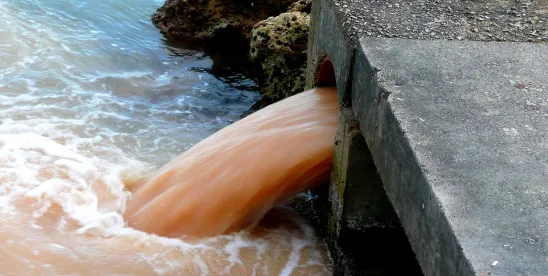In recent years, a consistent issue facing hydroelectric project developers at the Federal Energy Regulatory Commission (FERC or Commission) has been the length of time it takes states to act on requests for water quality certification pursuant to Section 401 of the Clean Water Act (401 Certification). How long a state or tribal Certifying Authority has to act on such a request—and indeed whether the Certifying Authority has acted at all—have the potential to significantly delay a project. At its May Open Meeting, FERC issued a Notice of Proposed Rulemaking (NOPR) seeking to remove uncertainty around how long a Certifying Authority has to act on a request for 401 Certification.
Through its NOPR, FERC seeks to amend its regulations regarding hydroelectric proceedings in which 401 Certifications are required. FERC’s NOPR is, in part, in response to rule changes promulgated by the Environmental Protection Agency (EPA) in September 2023 (referred to as the Certification Improvement Rule) wherein the EPA revised its own regulations regarding 401 Certifications.1 Specifically, FERC’s NOPR proposes three revisions to FERC’s regulations governing hydroelectric licensing, amendments, exemptions, and surrenders:
- Clarifying that for all FERC proceedings that require a 401 Certification, the reasonable period of time for a Certifying Authority to respond to a certification request is one year;
- For the first time, explicitly stating that applicants for an exemption from licensing pursuant to Section 4 of FERC’s regulations must seek a 401 Certification from the appropriate Certifying Authority(s) if the proposed project may discharge into waters of the United States; and
- Revising filing requirements for applicants seeking to use FERC’s expedited licensing process to conform with the Certification Improvement Rule.
Below, we summarize the pertinent aspects of FERC’s NOPR, and offer some thoughts on the potential impacts of these changes for the broader hydropower industry.
CERTIFICATION UNDER SECTION 401 OF THE CLEAN WATER ACT
Section 401 of the Clean Water Act grants states and Tribes the authority to review federal permit applications for compliance with their water quality standards if the activity may result in a discharge into waters of the United States. Section 401 further provides that if a state or Tribe (referred to as a Certifying Authority) “fail[s] or refuse[s]” to act on a request for a water quality certification “within a reasonable period of time (which shall not exceed one year)” after the Certifying Authority receives the request, the state or Tribe waives its authority under Section 401 to grant or deny a water quality certificate. Although one year is the maximum length of time a state or Tribal Certifying Authority may go without acting on a request for certification under Section 401, federal agencies may negotiate a reasonable period of time with the Certifying Authority on a case-by-case basis; if the parties cannot agree to a reasonable period of time, the EPA’s Certification Improvement Rule sets the default period of six months for the Certifying Authority to act on the request. If, however, the federal agency sets a one-year reasonable period of time to act on a request for certification, the agency need not consult with the Certifying Authority.
ONE-YEAR PERIOD OF TIME FOR CERTIFYING AUTHORITIES TO ACT ON 401 CERTIFICATION APPLICATIONS IN ALL FERC HYDROELECTRIC PROCEEDINGS
In hydropower licensing proceedings, FERC’s regulations currently provide a one-year period of time for a Certifying Authority to act on a request for certification under Section 401. As FERC explains in the NOPR, however, although FERC’s historical practice has been to apply this same one-year period of time in all hydropower proceedings (i.e. license amendment, surrenders, and applications for exemptions from licensing), FERC’s regulations are not so specific. To address potential uncertainty stemming from this, FERC’s NOPR proposes to amend FERC’s regulations to clarify that in all proceedings before FERC that may require a water quality certificate, the reasonable period to act on a request for a 401 Certification is one year. FERC explained that codifying a categorical one-year reasonable period of time would promote administrative efficiency by avoiding negotiations between FERC and the Certifying Authorities whenever 401 Certifications were required. FERC also noted that establishing a universal one-year period of time for a Certifying Authority to act on a request for certification would provide certainty and consistency for all hydropower proceedings in which a 401 Certification was required.
CLARIFYING APPLICABILITY OF 401 CERTIFICATIONS FOR HYDROPOWER LICENSE EXEMPTIONS
The NOPR also seeks to formally clarify FERC’s position that because exemptions from licensing are still a form of federal permit, hydropower exemption applicants are required to seek a 401 Certification if they believe their project may result in a discharge to waters of the United States. As FERC explained, its prior policy (set forth in 1980) held that 401 Certifications were not required for hydropower licensing exemptions because, in FERC’s view at the time, an exemption was not a federal license or permit subject to Section 401 of the Clean Water Act.2 The NOPR reverses this policy, and clarifies that because exemptions from licensing are in fact a form of federal permit, applications for exemptions must include a request for a 401 Certification, as FERC requires for hydropower licenses.
FILING REQUIREMENTS FOR EXPEDITED LICENSING APPLICATIONS
Finally, through the NOPR, FERC seeks to align the timing of filing requirements for FERC’s expedited licensing process under Part 7 of FERC’s regulations with those of the Certification Improvement Rule. As currently drafted, FERC regulations require applicants under the expedited licensing process to include a copy of the applicants’ request for water quality certification; however, the Certification Improvement Rule requires 401 Certification applications to include a copy of the final application for the federal license or permit. To deconflict the timing between these two requirements, the NOPR proposes to provide applicants under the expedited licensing process 60 days to submit evidence of an application for 401 Certification after filing for the expedited license, consistent with the requirements of the Final Certification Rule. In addition, the NOPR proposes to update certain terminology in FERC’s regulations to mirror the EPA’s regulatory terminology to avoid confusion.
TAKEAWAYS AND OPPORTUNITIES TO COMMENT
FERC’s policy that one year constitutes a “reasonable period of time” for Certifying Authorities to act on applications for 401 Certifications in license proceedings is well established. However, this is the first time that FERC has formally clarified that this one-year period to act applies universally to all FERC hydroelectric proceedings, including licensing, surrender, amendment, and exemption proceedings—regardless of the nature or complexity of the proceeding or the level (or lack thereof) or corresponding environmental impacts. If a FERC-jurisdictional proceeding may result in a discharge to waters of the US, FERC is clear—the relevant Certifying Authority has the maximum, one-year period afforded by the Clean Water Act to act on an application for a 401 Certification, starting from the date the Certifying Authority receives the request.
While the NOPR provides clarity on this issue, it is silent as to mechanisms employed by Certifying Authorities to evade 401 Certification’s requirement to act on a request for certification within one year of receipt. FERC, and US federal courts of appeal have grappled with state Certifying Agencies employing various means—including “withdrawal and file” schemes and denying requests without prejudice to refile—to avoid having to affirmatively approve or deny a request within one year. Absent similar clarity on this matter, such issues will remain subject to case-by-case consideration by FERC.
On 28 June 2024, FERC extended the deadline to comment on the NOPR 30 days, comments must be submitted by 7 August 2024. Lawyers in our industry-leading Energy, Infrastructure, and Resources practice group are well positioned to help you further understand the potential impacts of FERC’s NOPR, as well as consider and prepare comments for submission to FERC.






 />i
/>i
